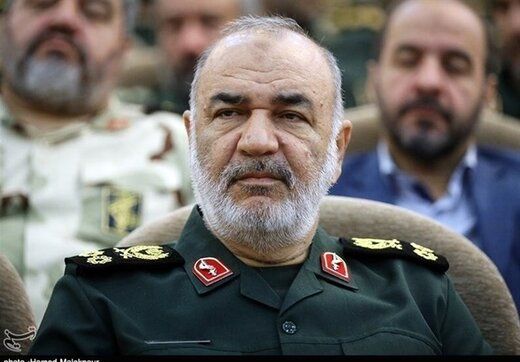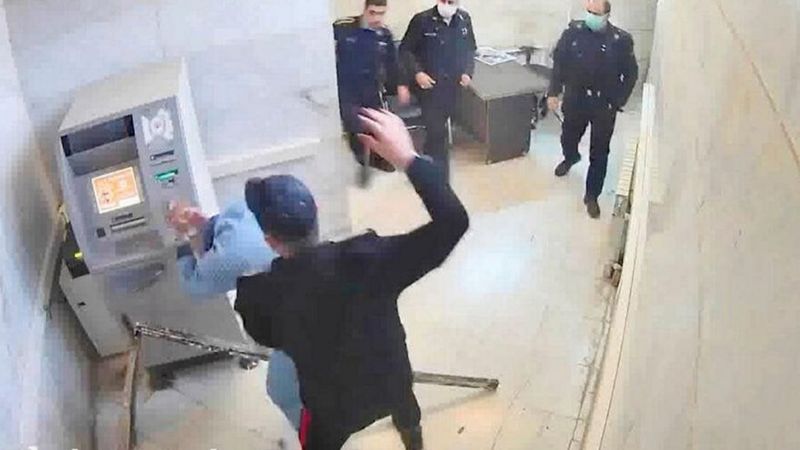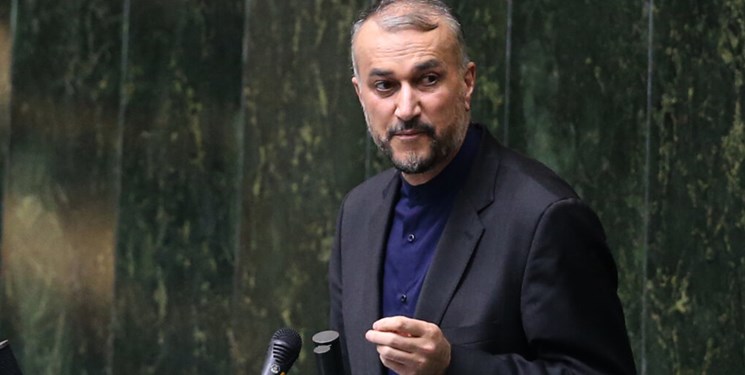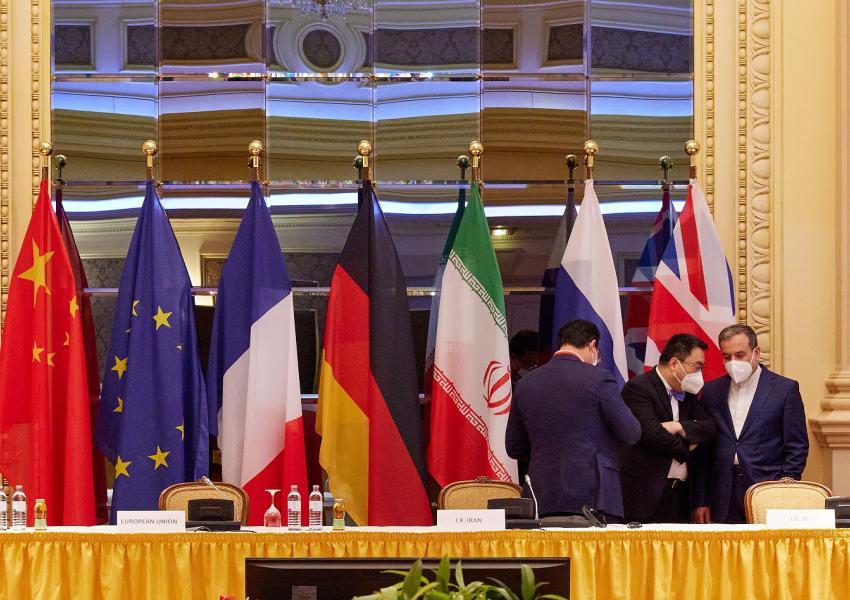
Government and the Necessity of Redistributing Wealth
The editorial of Vatan Emrooz reviews the difficulties facing the 13th government headed by Ebrahim Raisi in redistributing wealth and creating economic justice, focusing on how taxation, subsidies and the banking system are problematic in this regard.
It has been almost a month since the 13th government took office, claiming to champion the idea of reestablishing justice in all aspects of governance. Obviously, one of the most difficult missions of Raisi’s government is to create justice in the economy. This will not be possible without putting into effect policies for redistributing wealth. Given Iran’s economic structure, focusing on economic development will not be adequate to compensate for the shortcomings in the country’s economic justice.
All global systems in the world that have worked to redistribute wealth in recent decades have failed because of flawed policymaking. These systems have widened the gap between different social groups. In the recent decade, due to increased inflation and the decrease in the value of the national currency in relation to the dollar, the gap has widened, which means inflation has become a catalyst for making the rich richer while people’s earnings have declined. These systems are: taxation, subsidies, and banks.
The tax system can be used as a good resource for funding the government’s expenses and can play a leading role in creating economic justice. Due to the lack of a monitoring structure and the lack of transparency, it is the low-income families that pay the most taxes while big economic actors enjoy tax exemptions.
Subsidies are there to help vulnerable groups in society. Currently, however, because of extensive subsidies in Iran, the subsidies system has become regressive: any citizen who has more enjoys more subsidies. For example, a considerable number of people cannot access different forms of energy, but they still end up paying the price for these utilities.
Banks with 90 percent of liquidity are the first culprit in creating inflation in the country. Along with this, banking facilities are made available in such a way that serves only rich people. The middle and lower classes have never been able to enjoy banking facilities.
European Condemnation Is not Important
Several European countries recently condemned Iran’s nuclear activities following the IAEA’s report on Iran’s advances in its nuclear program. The editorial of Arman Melli claims such condemnations are not that important, as everyone is waiting to see who will take charge of the Iranian Foreign Ministry in Raisi’s government.
When Iran stopped fulfilling its obligations under the nuclear deal (JCPOA), the Europeans every now and then condemn Iran for breaching the deal. In recent years, Iran has been repeatedly condemned by the European countries for not fulfilling its JCPOA obligations.
In its latest report, the IAEA said that Iran has produced more than 200 grams of uranium metal with 20 percent enrichment. The Europeans reacted to the report and condemned Iran. For the time being, the Europeans are waiting for Raisi’s government to settle in and for someone to take control of the Foreign Ministry. Meanwhile, it is still not clear whether Iran’s nuclear issue will be handled by the Foreign Ministry or the National Security Council. Apparently, the White House is also waiting to see what Iran’s approach to the JCPOA will be.
So, as long as it is not clear who will be in charge of the Foreign Ministry, the nuclear talks will not resume. Of course, it seems that in the coming days, Raisi’s cabinet will be determined and the Americans will see who will be included in the new negotiating team. When the new nuclear team is introduced, it will become clear what the new team’s approach is going to be and if they are ready to go back to the negotiating table.
There are indications that Raisi’s government will return to the nuclear negotiations and will talk with the Americans. But there are doubts about whether the new government will easily reach an agreement with the Americans about the JCPOA.
That the Europeans condemn Iran is not that important, and these condemnations are not unprecedented. They feel they must react to the IAEA’s report about Iran’s nuclear activities and should not remain silent.
Iran denies the IAEA’s claims and has warned the US administration again and again about breaching the JCPOA. As for Iran-US negotiations, it seems that the Iranian establishment’s approach is not going to change much. Perhaps we are going to see some tactical alterations in future talks between Iran and America. Overall, Raisi’s government does not seem to want to stop the nuclear talks, as the establishment has decided to resume nuclear talks in the coming months.
Raisi Breaks his First Promise
The editorial of Hamdeli underlines that President Ebrahim Raisi did not keep his promise to the people who were asked to take part in electing his cabinet and the managers of the government.
Ebrahim Raisi’s nominees for ministers were introduced to the Parliament. As always, when nominees are announced, some lawmakers are for and some are against the nominees. This time was also no exception. For example, as for the minister of education, it is said that he lacks the necessary experience for managing this ministry. Moreover, many are against Raisi’s nominee for health minister who had endorsed putting restrictions on importing the coronavirus vaccine. And some members of the artists’ community are against the nominee for the Ministry of Islamic Culture and Guidance because of his earlier remarks.
Nevertheless, it seems that because of the close ties between the government and the Parliament, Raisi’s cabinet will not face any serious challenges in getting a vote of confidence.
Earlier, media outlets had announced that a website called “Raisi’s friends” had been launched, which was reportedly going to introduce the nominees for Raisi’s cabinet with public participation. As such, Raisi and his team invited people to participate in introducing the ministers for the next cabinet.
This website is still accessible and Raisi’s message reads: “As I promised this website is launched for people to participate in introducing the members of the government,” thus all people were invited to introduce those who are “competent, anti-corruption, with revolutionary morale, and popular.”
Now that the cabinet nominees are introduced, the question is: did Raisi keep his promise? Were these nominees introduced and endorsed by the people? What was the people’s role in nominating the new government’s cabinet?
Answering these questions will make it clear that Raisi did not keep his first promise to the people which was that he would form his government with the people’s help.
People’s Demands From the 13th Government
The editorial of Arman Melli urges Ebrahim Raisi’s government to find ways to satisfy the people’s urgent demands immediately.
The 13th government must immediately respond to the people’s demands and urgently take measures to improve their living conditions. Today, the country is grappling with economic problems and instability in prices, and the 13th government must do its best to fulfill its promises.
If the 13th government injects some capital into society in the short run, it might be helpful for the people. But the question is: how is the government going to provide the capital to achieve this?
The head of the 13th government is now facing different challenges including the nuclear deal, coronavirus, US sanctions, industrial closures, etc. – problems that must be dealt with if the country is to overcome the current recession.
There is no doubt that all these issues cannot be achieved in the short run, and even if possible, it will be very difficult because dealing with these challenges requires costly plans and financial resources. Furthermore, the escalation of tensions between Iran and the global community, as illustrated by the recent incidents in the Gulf and Sea of Oman, will make achieving these goals more difficult.
Today, Iran needs to interact with the global community to overcome its problems, and with balanced policies the government can resolve the country’s issues. Otherwise, the government can use unidentified financial resources to improve the country’s economy in the short run. Media outlets closely linked to the 13th government have reiterated that in the early months of the 13th government, economic conditions will improve. But there is still skepticism about the 13th government’s success.
Apart from all these issues, the 13th government must control prices, contain inflation, and provide for people’s essential needs. It must not be forgotten that chanting slogans will not resolve the issues, and as people have made clear in their protests they want their demands to be met immediately. The 13th government must take immediate measures in this regard.

IRGC Chief Commander: We Don’t Trust the Enemies for Importing Vaccines

Coronavirus is breaking all records for deaths and infections in Iran, while people must stand in long lines to get whatever vaccine that is being administered.
Nevertheless, IRGC Chief Commander Hossein Salami has said regarding importing and manufacturing coronavirus vaccines that “we do not trust the enemies who manufacture biological weapons when it comes to importing vaccines,” adding that “they use biological weapons against our people and, under such circumstances, we will act independently.”
Salami has emphasized the need to import vaccines from reliable countries and increase efforts to manufacture domestic vaccines.
The slow process of vaccination in Iran has been cited as one of the main causes of the severe spread of coronavirus in Iran, which has one of the lowest rates of vaccination in the world.
Last winter, Iranian Supreme Leader Ali Khamenei banned importing vaccines manufactured by Britain and America. Meanwhile, Iranian media say that these vaccines have been imported by the private sector and are administered to those who can afford to pay very high prices for them.
Unofficial estimates show that the total number of deaths in Iran has passed 200,000, while government statistics estimate that about 100,000 people have lost their lives due to the coronavirus.
In the meantime, renowned political activist Abolfazl Ghadyani issued a statement saying that “Ali Khamenei is responsible for all these catastrophes and tragedies that he creates so that his illegal, usurping, unlawful state continues.”
His statement reads: “Ali Khamenei has in actuality made coronavirus a tool for murdering the Iranian people. At first, he denied and undermined coronavirus, then he said coronavirus is the enemies’ conspiracy, later he denied international aid, and finally he banned importing British and American vaccines.”
At the end, Ghadyani considered regime change as the only viable option for a peaceful transition from these deplorable conditions, calling for Khamenei’s resignation and holding a referendum for the transition from an Islamic Republic to a secular democracy.
Evin Prison’s CCTV Hacked; Head of Prisons Organization Apologizes

Following the release of video footage from Evin prison’s CCTV which was hacked by a hacking group called “[Imam] Ali’s Justice,” human rights activists and social media users reacted to the brutal, illegal treatment of Iranian prisoners, calling this a violation of human rights.
The footage shows prisoners beaten, dragged on the ground and mistreated in every possible way by prison guards. It also shows a prisoner committing suicide, as well as the deplorable conditions of Evin prison.
Ali’s Justice has said that they hacked Evin’s CCTV to disclose the widespread human rights violations in Iranian prisons. On the hacked footage, a sentence appeared reading: “Cyberattack: Evin Prison is a stain on the white turban of Raisi; protests until the release of all political prisoners.”
The message refers to Iran’s new President Ebrahim Raisi’s role in mass executions carried out in the 1980s, as well his extensive record of human rights violations.
Following the release of the footage of Evin’s CCTV, the head of the Prisons Organization of Iran, Mohammad Mehdi Haj Mohammadi, apologized for these images in a tweet, saying he accepts responsibility for the mistreatment of prisoners by the prison guards.
The Head of the Prisons Organization apologized to “God,” “the Supreme Leader” Ali Khamenei, “the Iranian people” and “the prison guards,” promising that their efforts will not be overlooked. But he did not apologize to the prisoners who were brutally persecuted by prison guards.
After seeing these images from Evin’s CCTV, some social media users underlined that we can now see how political prisoners like Zahra Kazemi and Sattar Beheshti were killed in Iranian prisons.
Nevertheless, cyber and human rights experts have asserted that this footage exposes a common practice in the wards of Evin prison and do not include any images from other wards that are controlled by the Intelligence Ministry and the Islamic Revolutionary Guard Corps (IRGC), where prisoners are said to be treated much worse.
Raisi’s Nominee for Foreign Minister Underscores Using “Diplomacy and the Military Field’

This week, Ebrahim Raisi introduced his cabinet nominees to the Parliament for a vote of confidence.
For leading the Foreign Ministry, Raisi has nominated Hossein Amir-Abdollahian who went to the Parliament to explain his plans to lawmakers. Amir-Abdollahian stressed that he will advance “diplomacy and [the military] field” together, urging that “[the military] field’s power will be a strong support for diplomacy.” He also said regarding the nuclear deal talks that he will not “escape” the negotiating table, but will not take part in “coerced” talks either.
Amir-Abdollahian continued by saying that “I will announce it loud and clear that we think of talks as an instrument for diplomacy and will not escape any talks which are held wisely and powerfully. But we will not tie the country’s destiny to negotiations. We will do anything to lift the sanctions, but will back talks that are not corrosive and serve the Iranian nation’s interests.”
The nominee for the Foreign Ministry went on to say that in West Asia, “we will be after consolidating the achievements of the resistance front, and in East Asia we will be after cooperation with newly established economic systems.” He said bolstering Iran’s proxy groups in the region, so-called “resistance fronts,” will be a main part of his agenda.
Amri-Abdollahian underlined Iran’s presence as a stabilizing force in the region, but did not mention Iran’s missile program which has been one of the main concerns of the regional countries, as well as the European countries and America.
At the end, he mentioned former Quds Force Commander Qassem Soleimani, underscoring that “diplomacy and [the military] field will be two powerful arms for providing maximum national security for the country,” perhaps taunting former Foreign Minister Mohammad Javad Zarif who had criticized Soleimani for sacrificing diplomacy for the military field.
During the term of former President Mahmoud Ahmadinejad, Amir-Abdollahian was the deputy in the Foreign Ministry for Arab Affairs. When he was dismissed from his position by Zarif in 2016, the Iranian media talked of Amir-Abdollahian’s close relations with the IRGC Quds Force.
Europe Concerned About the Acceleration in Iran’s Uranium Enrichment

Three European members of the nuclear deal (JCPOA) – Britain, France and Germany – have expressed concerns about the acceleration in uranium enrichment in Iran near the level required for building a nuclear bomb, calling it a breach of Tehran’s obligations.
Meanwhile, a European diplomat told Iran International that the JCPOA members have sent a message to Iran’s newly elected President Ebrahim Raisi calling for resuming the nuclear talks in Vienna which were interrupted.
The IAEA in its latest report says that Iran has launched a new cascade of advanced centrifuges for enriching uranium up to 60 percent.
90 percent enriched uranium can be used in building a nuclear bomb, which is why Iran’s 60 percent enrichment has concerned Western countries.
According to the IAEA report, Iran previously used a 164-cascade of IR-6 centrifuges for enriching uranium up to 60 percent, but now it is using a 153-cascade of IR-4 centrifuges for 60 percent enrichment as well.
The US Department of State has also reacted to the IAEA report, urging that Iran must stop its nuclear progress and return to full implementation of its obligations under the JCPOA.
In this statement, America has emphasized that Iran has no plausible need to produce uranium metal, which is directly related to developing nuclear weapons.
Iran’s Foreign Ministry spokesperson, however, has responded to the IAEA report saying that “until the full, unconditional implementation of the JCPOA is not resumed by America and other parties to the nuclear deal, the Islamic Republic of Iran will pursue its nuclear program based on its needs as well as decisions made by the establishment.”
Meanwhile, a European diplomat, on condition of anonymity, told Iran International that the members of the JCPOA, in a message to Raisi, have called for resuming the Vienna talks which were interrupted.
